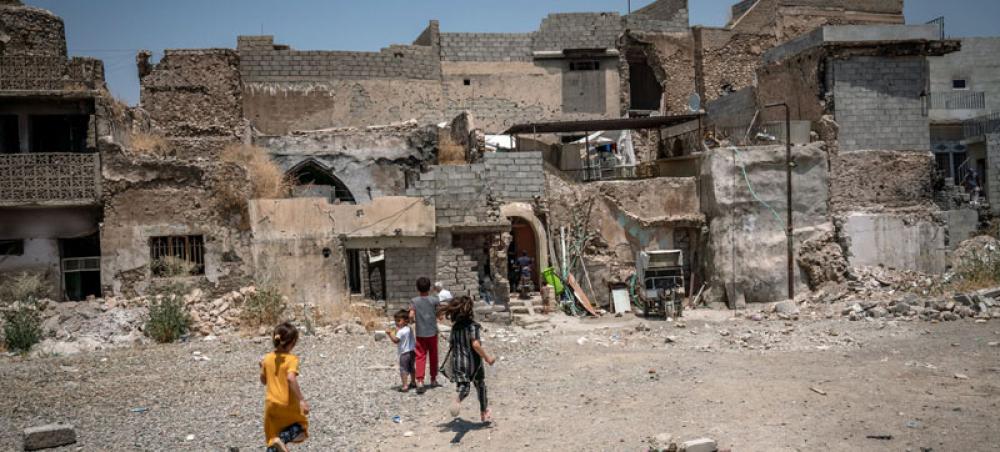Just Earth News | @justearthnews | 25 Nov 2020, 04:30 am Print

Iraq
New York: As authorities in Iraq continue to operate “in the eye of multiple storms”, international support remains essential for resolving ongoing political, security, economic and social crises, as well as the fallout from the COVID-19 pandemic, the Security Council heard on Tuesday.
UN Special Representative in Iraq Jeanine Hennis-Plasschaert briefed ambassadors, at what she called “this critical juncture” in the country’s modern history.
“If the pandemic has taught us anything, it is that local problems hardly ever remain local, and that domestic trouble rapidly translates into trouble abroad”, she told the virtual meeting. “In other words: Your continued support is vital, and much appreciated.”
Reforming the economy
Ms. Hennis-Plasschaert said Iraq’s economic woes have only worsened in the pandemic. The economy is projected to contract by nearly 10 per cent this year, while oil prices continue their downward slide.
She reported that the Government issued a white paper last month which outlined structural imbalances in the economy and much-needed reforms.
The measures are necessary to diversify the economy and to advance sustainable development, but also to meet the aspirations of scores of Iraqis who took to the streets last year to denounce corruption, high unemployment and other pressing concerns.
‘Step up to the plate’
However, implementation is another question, according to the UN envoy.
“One thing is clear: without broad political consensus to transform the white paper into reality, it risks remaining just ‘words’ on a page”, she warned.
“But let me emphasize: serious, resolute measures to address the ongoing financial and economic crisis cannot wait, not for a day. Government, parliament, political parties and others will have to step up to the plate collectively.”
A role for improved governance
With Iraq on track to hold elections in June, Ms. Hennis-Plasschaert hoped reforms “will not be swept under the carpet”, which would only worsen the economic situation and thus potentially fuel unrest.
In the interim, the Government has resorted to borrowing to meet its obligations through the end of the year, including payment of civil servants’ salaries.
The top UN official noted that related legislation initially had funding for economic reforms as an objective.
“However, the law, as actually amended and adopted by Parliament, significantly limits the government’s room for manoeuvre. One therefore must ask whether the ends justify the means”, she said.
The UN envoy recalled the fundamental importance of fighting corruption, stating “any effort to reform Iraq’s economy must be accompanied by improved governance and transparency.”
Elections on the horizon
Turning to the upcoming vote, Ms. Hennis-Plasschaert reported that the UN Assistance Mission for Iraq (UNAMI), which she heads, has begun ramping up technical assistance ahead of the process.
She underlined that the elections will be Iraqi owned and led, while reaffirming that all phases of the preparations must be free from political interference.
“Indeed, the responsibility for credible elections lies not only with the Iraqi authorities, but with all Iraqi electoral stakeholders, with all political actors and with all Iraqi citizens - who are called upon to play a greater role in the public sphere”, she stressed.
Ms. Hennis-Plasschaert urged Iraqis, particularly women and young people, to “seize this opportunity to make their voices heard”, whether as voters or as candidates.
- Dalai Lama's Office breaks silence on Epstein claims
- Russia says suspect in shooting of GRU Deputy detained in Dubai
- Mystery gunman strikes: Top Russian General shot in dramatic Moscow incident
- Begging bowl: Pakistan PM says he feels “ashamed” seeking loans abroad
- USCIS opens 2027 H-1B registration: Don’t miss the March 4 deadline!





-1763561110.jpg)
